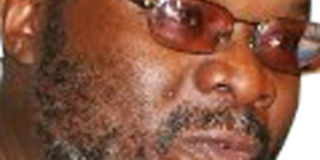Kibaki and Raila must decide on right priorities for Kenya

What you need to know:
- President Kibaki felt that as leader of a sovereign state, he could not be summoned to Geneva by a mere former UN secretary-general.
- Geneva is an important stocktaking that will provide opportunity to gauge whether we are treading the right path.
PRESIDENT KIBAKI AND PRIME Minister Odinga are both very conspicuous by their absence at the conclave hosted in Geneva by Dr Kofi Annan.
The former UN secretary-general brokered the ground-breaking accord that restored a semblance of peace and normality in Kenya after the eruptions that followed the disputed elections of December 2007.
A year after the peace accord, Mr Annan invited the principals to Geneva for a major conference to review progress and also deliberate on what lessons the Kenyan model has for other conflict zones.
Kenya’s two top leaders were to be the stellar attraction, but both opted to skip the parley for reasons that have more to do with ego than anything else.
Indications were that President Kibaki felt that as leader of a sovereign state, he could not be summoned to Geneva by a mere former UN secretary-general.
In turn, Mr Odinga, who initially was keen to attend if only so that he could push for a bigger piece of the ugali, presumably decided that if his co-leader was not travelling to Geneva, then he would adopt a similar posture and not reduce himself by attending.
It sometimes seems comforting that both the principals are keen to restate at every opportunity their determination that the coalition lasts up to 2012.
Yet the decisions to skip Geneva and focus on holding together till the next elections illustrate perfectly what is wrong with Kenya and why the country is treading such a perilous path.
Geneva is an important stocktaking which, on neutral territory, will provide opportunity to gauge whether we are treading the right path.
This might be the forum to let us see that the issue is not about sticking together until 2012, but whether we will survive as a nation until that time.
There may well be legitimate questions about why the meeting is being held in Geneva and not in Nairobi, but the more germane issue is that Kenya’s principal leaders completely refuse to recognise the basic fact that the country is not out of the woods yet.
Both are happy in their comfort zones as president and prime minister under the power-sharing agreement, but they close their eyes to the fact that neither can claim full legitimacy.
Both are, at best, caretakers leading a transitional administration charged with the singular task of fixing all that is wrong with Kenya so that we can then elect a leadership in a process where there will be no dispute and where there will be no risk of civil war.
BY REFUSING TO RECOGNISE THE basic fact that they are mere caretakers, President Kibaki and Prime Minister Odinga might turn out to be pallbearers.
The situation is as serious as that. As all our leaders focus on getting their share of the ugali and on positioning themselves for the next election, they are oblivious to the fact that they could be leading us to the next war.
It is almost certain that if we go to the next elections before resolving the serious schisms in society, we will be heading, not towards an opportunity to choose our leaders, but headlong into the abyss.
Our leaders must not forget that the power-sharing brought only a temporary respite, a ceasefire while deep-seated divisions are settled.
Until we reach a comprehensive peace settlement, the war is still on, and could erupt again with more ferocity at the slightest provocation.
I have heard some of our neighbours from Somalia, Sudan, Ethiopia, Uganda, Rwanda and Burundi make light of the fact that in this day and age, Kenya’s violent post-electoral conflict was fought out with stone-age weapons — bows and arrows, spears, stones and pangas.
Chances are if hostilities break out again, we will have graduated to more modern arsenals.
That could be the war that sends Kenya spiralling down the abyss to join the ranks of Somalia, Côte d’Ivoire, Liberia, Sierra Leone and others that have endured complete breakdown.
One might presume that as he serves out his final term, President Kibaki is thinking about rescuing some shreds of respectability for a shattered legacy.
One might also presume that as Mr Odinga works towards securing his role as undisputed numero uno, his prospects will be irredeemably harmed if his co-leadership leads to ruin and destruction and there is no country left to lead.
Both men are fast running out of time to get the coalition government back on track. It’s time to stop being so defensive and accept the harsh realities.




